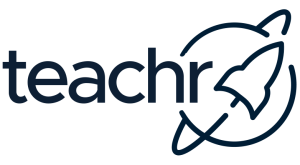Where countless courses compete for attention, standing out is crucial. Search Engine Optimization (SEO) plays a pivotal role in ensuring that your online course gets the visibility it deserves. Let’s take a look into SEO and explore actionable tips that can elevate your online course.
SEO Unwrapped: Online Course Magic for Beginners 🧠
SEO is not just a buzzword; it’s the driving force behind how search engines like Google rank and display content. In the context of online courses, SEO involves optimizing your course content and website to make it more attractive to search engines, ultimately improving its visibility in search results.
Keyword Magic: The Secret Sauce of SEO Awesomeness for Online Courses! 🔍
The journey to mastering SEO for online courses begins with understanding keywords. These are the phrases or terms potential learners might type into a search engine when looking for courses similar to yours. Conduct thorough keyword research to identify the terms relevant to your course content.
Utilize tools like Google Keyword Planner or SEMrush to discover high-ranking keywords in your niche. Incorporate these keywords naturally into your course title, description, and throughout your content to signal to search engines that your course is a relevant and valuable resource.
Cracking the SEO Code: Jazzing Up Your Course Descriptions for Search Engines 📝
Crafting compelling course descriptions is an art, and optimizing them for SEO is a science. Rather than focusing solely on the aesthetic appeal of your course description, infuse it with relevant keywords. Ensure that the language is clear, concise, and engaging, as this will not only attract search engine algorithms but also captivate potential learners.
Additionally, consider including a meta description that succinctly summarizes your course. This snippet appears below the title in search results and can significantly impact click-through rates. Make it enticing, informative, and, most importantly, keyword-rich.
Linking Up: Because Backlinks Boost Your Street Cred Online! 🌐
Just as in traditional education, citations and references bolster the credibility of your work, online courses benefit from backlinks. These are links from other reputable websites that direct traffic to your course. Google and other search engines perceive backlinks as votes of confidence, signaling that your course is a valuable resource.
Collaborate with other educators, industry influencers, or bloggers to build backlinks. Guest posting, participating in online forums, or reaching out for reviews are effective strategies to earn backlinks organically. Remember, quality matters more than quantity, so focus on securing links from authoritative sources in your niche.
SEO is not just about appeasing algorithms; it’s also about catering to your audience. Develop high-quality, shareable content that resonates with your target audience. This could include blog posts, infographics, or video content related to your course.
Share your content on various platforms, including social media, to increase its visibility. The more people engage with and share your content, the more search engines perceive it as valuable, boosting its ranking. Encourage your learners to share their experiences and insights, creating a community around your course.
Mobile Mojo: Don’t Skip It, Your Course Needs That Smartphone Swagger 📱
Optimizing your online course and website for mobile devices is not optional—it’s imperative. Google prioritizes mobile-friendly websites, considering the increasing number of users accessing content on their phones or tablets.
teachr’s platform is already responsive, providing an optimal viewing experience across different devices. Pages that load quickly on mobile devices are favored by search engines, contributing to a positive user experience and, consequently, better SEO rankings.
SEO Trends Unwrapped: Keeping It Real in the Online Learning Game 🔄
SEO is a dynamic field, with algorithms and trends evolving constantly. To maintain and improve your course’s visibility, it’s crucial to stay informed about the latest SEO developments.
Subscribe to industry blogs, attend webinars, and follow reputable SEO experts on social media. Google’s algorithm updates, changes in search behavior, and emerging trends can impact your course’s performance. Stay proactive in adapting your SEO strategy to align with these changes and ensure your course remains relevant and discoverable.
Crunching Numbers: How Our Online Course Rocked with Analytics and Insights 📊
Implementing SEO strategies is only half the battle; monitoring and analyzing their effectiveness is equally important. Utilize analytics tools like Google Analytics or the analytics provided by your course platform to track the performance of your content.
Examine metrics such as organic traffic, click-through rates, and conversion rates to assess the impact of your SEO efforts. Identify what is working well and areas that require improvement. Regularly reviewing analytics data empowers you to refine your SEO strategy, ensuring ongoing success for your online course.
Let’s see the final Conclusion: 🌐
In online education, mastering SEO is akin to navigating a landscape filled with opportunities. By understanding SEO, optimizing your course content, and staying abreast of industry trends, you can elevate your online course to a better position.





